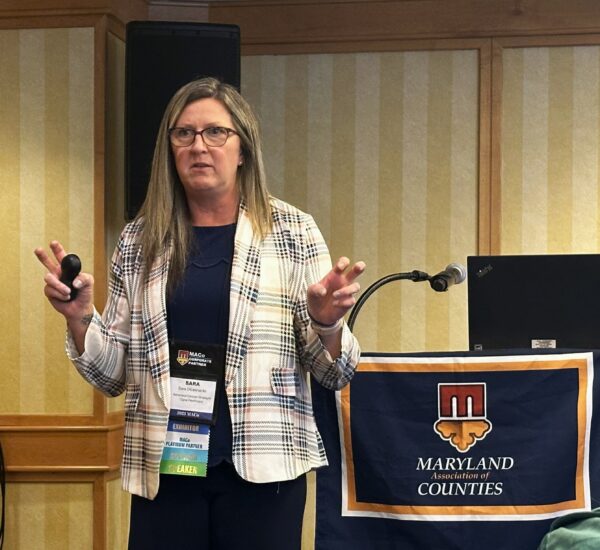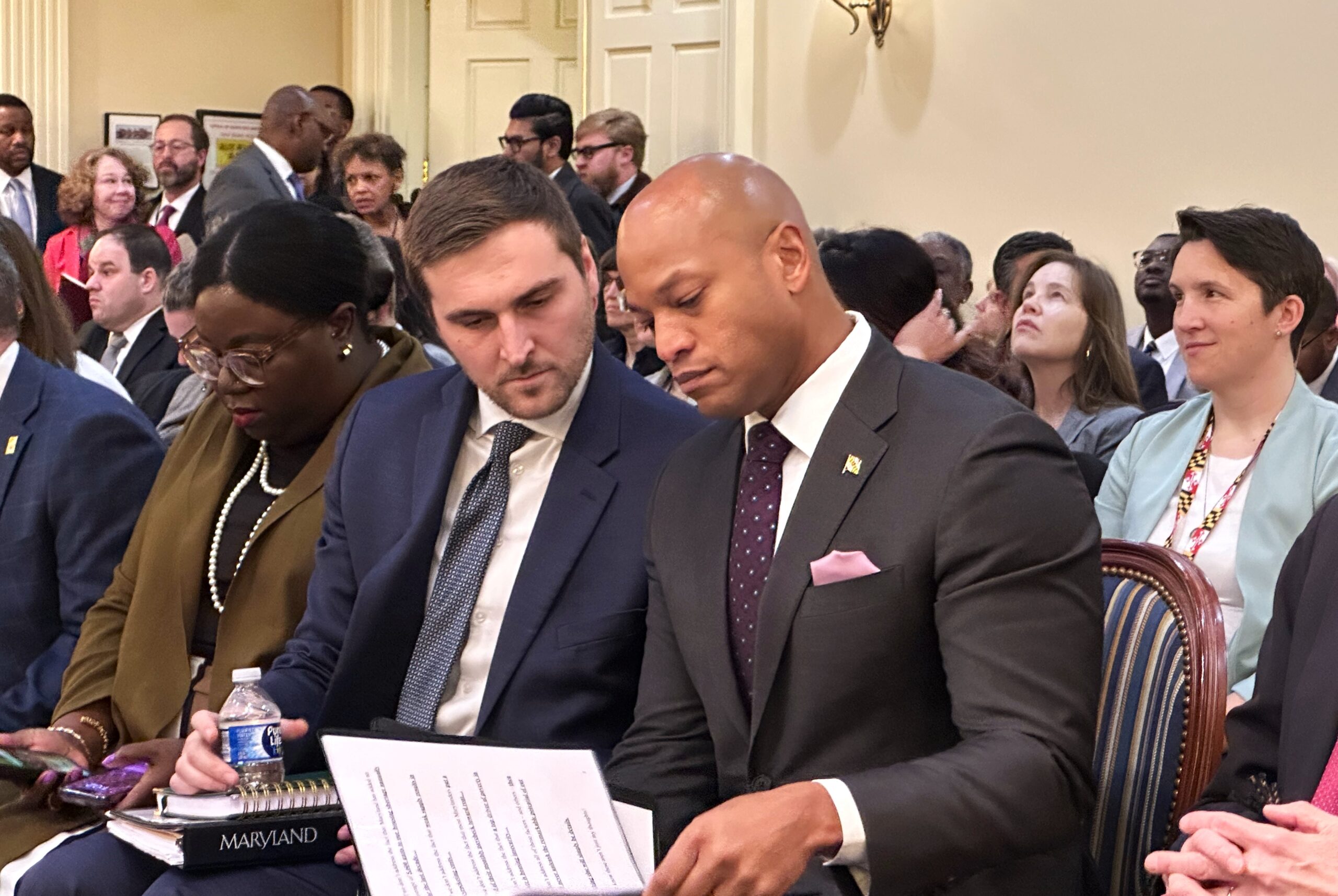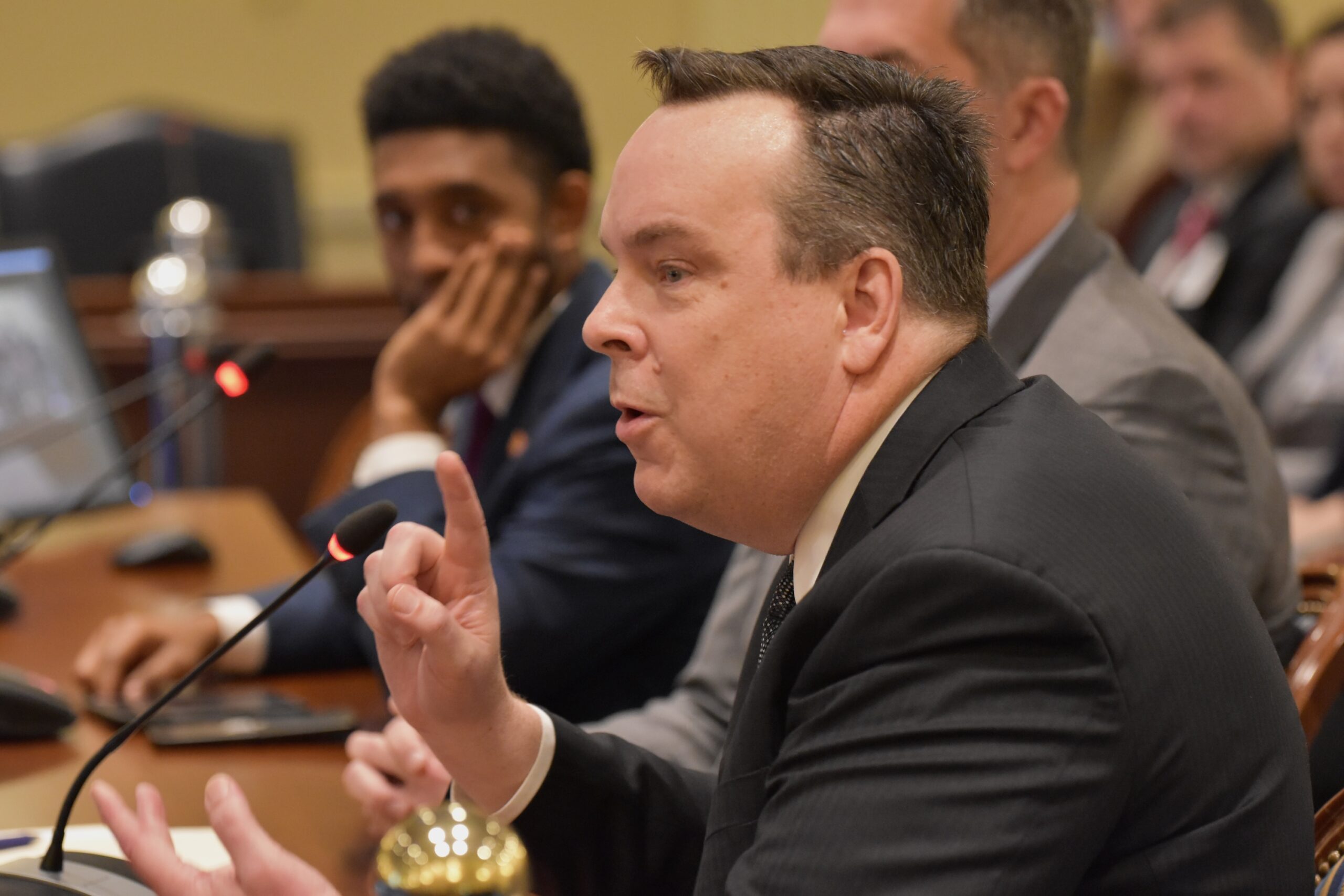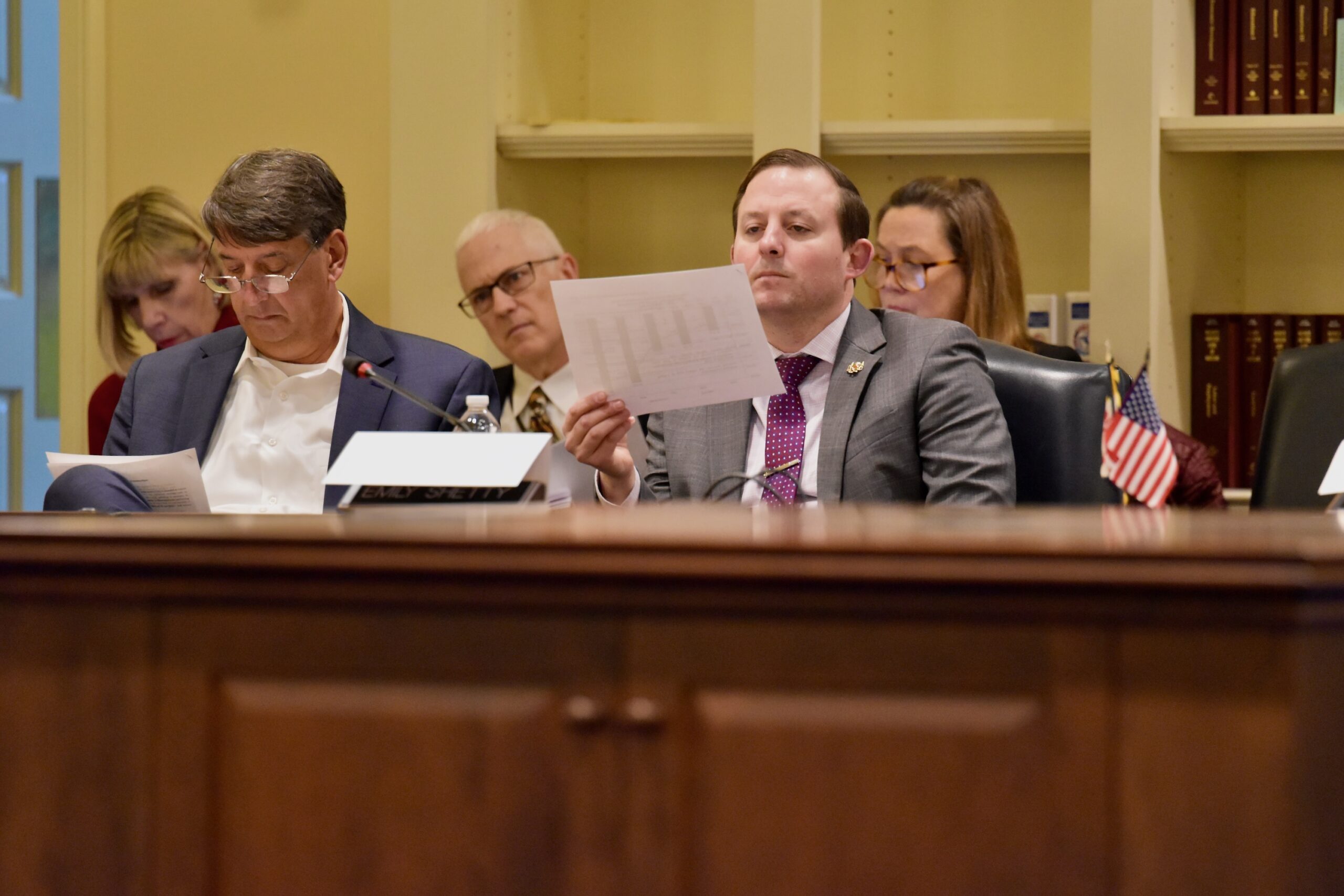State officials, workplaces trying to improve mental health among young Marylanders

Declining mental health among young people is an ongoing issue, as lawmakers, workplaces and even local schools look for solutions to help kids and adolescents who are struggling with anxiety, depression, and thoughts of suicide.
But the issue is multifaceted, according to Sara DiLeonardo, behavioral clinical strategist with Cigna Healthcare, who spoke at the Maryland Association of Counties winter conference in Cambridge. The conversation, hosted by Cigna, focused on how workplaces should plan to accommodate the mental health needs of Maryland’s Gen Z population, defined as those aged 11 to 26.
DiLeonardo said that world events have contributed to issues in mental health among that generation and urged medical providers and local leaders to plan on incorporating mental health services that are sensitive to those needs, especially as Gen Z is expected to make up 30% of the workforce by 2030.

Sara DiLeonardo, behavioral clinical strategist at Cigna Healthcare, urges MACo attendees to accommodate Gen Z’s mental health needs on Dec. 7, 2023. Photo by Danielle J. Brown
“Every generation has a number of events that really affect the way that we view the world. Gen X, we have different ones than baby boomers, than the millennials, than Gen Z,” DiLeonardo said. “But think of the kind of overarching things that they’ve had to deal with: financial instability, ongoing conflict, and then non-stop access to the internet.”
She pointed to active shooter drills in school, ongoing military conflicts and the 9/11 attacks, and the 2008 recession as contributors to low mental health among Gen Z, as well as the influence of social media and technology.
Mental health among Gen Z and those who are younger could be discussed during the 2024 legislative session, when Maryland lawmakers have the opportunity to alter and expand behavioral health initiatives throughout the state.
According to a report from the Department of Legislative Services that analyzes likely topics of legislation, the high use of social media among adolescents may lead to increased risks of poor mental health outcomes.
The report says that the mental health needs of young people have “remained elevated or underserved since the [COVID] pandemic.”
“In 2021, students in grade 8 and grade 10 spent an overage of 3.5 hours per day on social media. Research shows that adolescents who spend more than 3 hours per day face double the risk of experiencing poor mental health outcomes, including symptoms of depression and anxiety,” the report says.
There have been previous efforts to tackle the mental health crisis among young Marylanders.
In the 2023 legislative session, Senate President Bill Ferguson (D-Baltimore City) pushed for, and lawmakers approved, a wide-ranging behavioral health legislative package to research and evaluate how to best tackle mental health needs across the state. It creates a commission that will look at mental health needs of specific communities, such as young people.
In addition, the Maryland Department of Health recently announced an expansion of the John L. Gildner Regional Institute for Children and Adolescents in Rockville.
According to a Tuesday press release, a newly renovated Cottage 2 at the institute allows for 12 additional beds to help young Marylanders through emotional, behavioral and learning difficulties. The facility is a residential treatment center for “youth who are court-ordered to the care of the Maryland Department of Health for competency attainment services.”
Meanwhile, Maryland Consortium on Coordinated Community Supports is reviewing grant proposals for bolstering community and school-based behavioral health efforts. The Consortium has $120 million to distribute for various projects.
The consortium, tasked with improving behavioral services in schools, met in late November to evaluate 258 project proposals across 24 school districts, totaling $380 million in requests.
The project funding requests ranged from $37,000 to $17.9 million, but staff for the consortium plan to talk with applicants to see if they can reduce the size of their requests.
Project proposals include school staff training, peer support, mental health apps, creative expression therapy, medication management and dating violence prevention.
Staff will offer recommendations on which proposals to fund and how much funding could go to projects. The consortium will meet in January to consider staff recommendations. Grant awards should be released in January.




 Creative Commons Attribution
Creative Commons Attribution